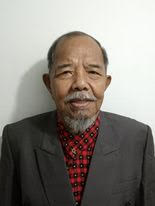Mauro Gia Samonte
 Mauro Gia Samonte is a self-taught literary craftsman, screenplay writer, film director, and a practicing journalist into his octogenarian years. In the early sixties, he dropped out of a civil engineering course at the Mapua Institute of Technology and, through sheer hands-on methods, proceeded to give vent to his literary pursuits. His first fiction, “Forests of the Heart,” published by the Weekly Graphic in 1965, became the germ of a screenplay titled “Tag-ulan sa Tag-araw,” which teed off a phenomenal film scriptwriting career spanning more than two decades and contributed a remarkable number of the most memorable blockbuster movies of Philippine cinema totaling more than fifty. His “Burlesk Queen” was not only the top box-office hit but also the grand winner of awards in the 1977 Metro Manila Film Festival, garnering 11 out of the 12 awards in the competition, including the Best Screenplay award for himself. He again won the Best Screenplay award for “Lumuhod Ka Sa Lupa” in 1987.
Mauro Gia Samonte is a self-taught literary craftsman, screenplay writer, film director, and a practicing journalist into his octogenarian years. In the early sixties, he dropped out of a civil engineering course at the Mapua Institute of Technology and, through sheer hands-on methods, proceeded to give vent to his literary pursuits. His first fiction, “Forests of the Heart,” published by the Weekly Graphic in 1965, became the germ of a screenplay titled “Tag-ulan sa Tag-araw,” which teed off a phenomenal film scriptwriting career spanning more than two decades and contributed a remarkable number of the most memorable blockbuster movies of Philippine cinema totaling more than fifty. His “Burlesk Queen” was not only the top box-office hit but also the grand winner of awards in the 1977 Metro Manila Film Festival, garnering 11 out of the 12 awards in the competition, including the Best Screenplay award for himself. He again won the Best Screenplay award for “Lumuhod Ka Sa Lupa” in 1987.
 Samonte has always striven to inject his films with touches to arouse awareness of social ills. His “Daluyong at Habagat,” made in 1975 – in times of expected repression by the martial law regime – was cited by literary critic Petronilo Bn. Daroy. His “Daluyong at Habagat” is today what El Filibusterismo was during the Spanish colonial era.” His “Walang Panginoon” mirrored the life of someone who had truly lived the hard life of a red fighter.
Samonte has always striven to inject his films with touches to arouse awareness of social ills. His “Daluyong at Habagat,” made in 1975 – in times of expected repression by the martial law regime – was cited by literary critic Petronilo Bn. Daroy. His “Daluyong at Habagat” is today what El Filibusterismo was during the Spanish colonial era.” His “Walang Panginoon” mirrored the life of someone who had truly lived the hard life of a red fighter.
In 1970, Samonte had already established a name as a movie journalist and as Editor of Movie Confidential and Entertainment Editor of the Weekly Nation, signature publications of the Amado Araneta-owned Makabayan Publishing Corporation. He also has a stature of an entertainment journalist and pursued a career in film.
 Of the more than a hundred articles he has written in his column that deal with China, fifty have already been published in an anthology titled China, “The Way, The Truth, and The Life.” The book, evidently the main credentials for Samonte’s nomination to this year’s APPCU Awards, is just one of the things he has intended to do to help better Philippines-China understanding.
Of the more than a hundred articles he has written in his column that deal with China, fifty have already been published in an anthology titled China, “The Way, The Truth, and The Life.” The book, evidently the main credentials for Samonte’s nomination to this year’s APPCU Awards, is just one of the things he has intended to do to help better Philippines-China understanding.
Among the things that remain a frustration for Samonte is the filmization of Laurel, a screenplay by which he intends to straighten out the many distortions of the real history of the Second World War in the Philippines. His firm belief is that Sinophobia among Filipinos is caused less by their actual anti-Chinese sentiments than by the continuing cultural enslavement by Americans. Filipinos easily believe false American yarns against China. To destroy American credibility is key to curing Filipino ill will toward China, and Laurel exposes the entire breadth and width of American atrocities in the Philippines, from the time of its colonization of the country in the 1890s to the so-called liberation of Manila in 1945 in which the actual bombing by MacArthur was what reduced the city to rubble, killing 200,000 civilians and turning Manila into the second most ravaged city in World War II next only to Warsaw, Poland.
 At 81, Samonte cannot but feel he is running out of time to do the film still. But, with China, hope springs eternal.
At 81, Samonte cannot but feel he is running out of time to do the film still. But, with China, hope springs eternal.
